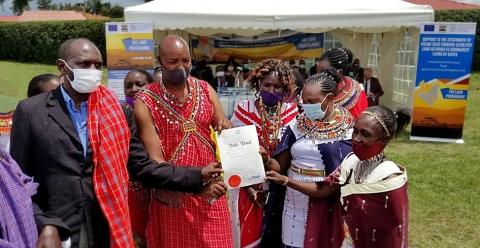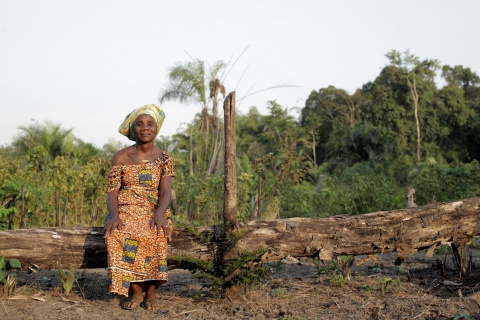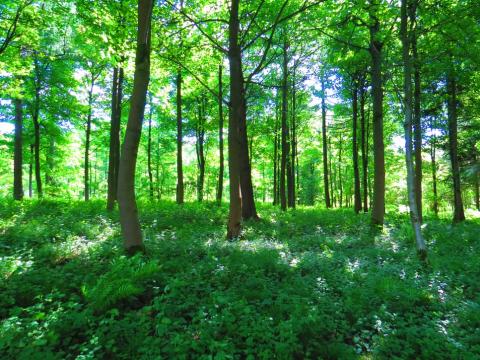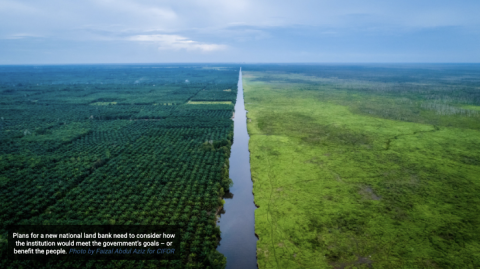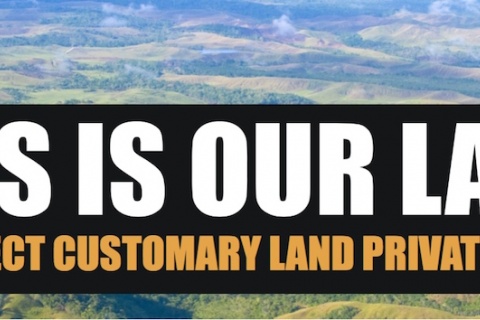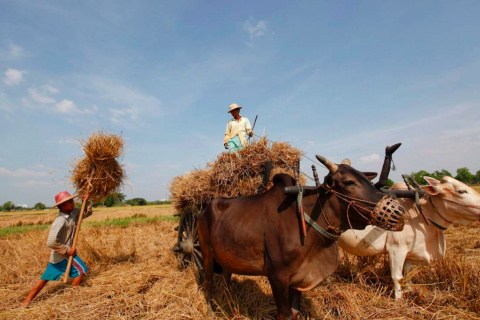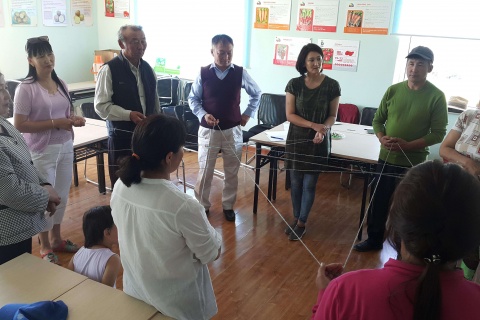Discover hidden stories and unheard voices on land governance issues from around the world. This is where the Land Portal community shares activities, experiences, challenges and successes.
 Follow our
Follow our
Sustainable Development Goals
Blog Series!
Interested in land corruption?
Follow our Land & Corruption Blog Series
for in-depth perspectives from the experts.
Issues
Geographical focus
It was good land. Before the company’s arrival in 2011, the people of Ngovokpahun village had used it to grow cocoa and other cash crops to help them pay for their children’s education. But when Italian Agriculture offered to build them a school, health center, and roads, provide them with employment, and pay rent, leasing out the land seemed like the wiser option. The company drafted the agreement and the landowners signed.
Addressing the land and conservation communities’ discomfort in discussing the relationships between migrants, Indigenous peoples, and tropical forests in the fight against climate change.
There is some irony in that many of the terms – ‘thesaurus’, ‘taxonomy’, ‘controlled vocabulary’ ‘ontology’ – that are intended to bring order and clarity to our use of language in professional settings are themselves subject to diverse interpretations and application. This is in large part because they are used by a range of people working in different contexts with different purposes.
The Maasai community of Musul have lived on the same land in Laikipia county for generations. It is their source of food and water, the heart of their culture and beliefs, and their ancestral home. But until recently, their legal rights to govern it were tenuous.
In a recent episode of the podcast Uncharted Ground, host Jonathan Levine spoke with Namati about building a global environmental justice movement. You can find it on any major podcast platform or listen to the episode (and access the full transcript) on Stanford Social Innovation Review's website. A recap of the episode, written by SSIR, is below.
What is the role of land law in natural disasters? Are current global systems of land law fit-for-purpose as we experience escalating rates of climate disruption?
The Land Rights Law (LRL), enacted on the 23rd of August 2018, was an impressive feat. It recognizes the land rights of all Liberians, especially rural communities who have historically been subject to mere user rights on their ancestral lands. The LRL protects the rights of communities to their claimed customary areas as their lawful property – “with or without deed”. This provision places an estimated 70% or more of the country under customary ownership.
WHY REJECT CUSTOMARY LAND PRIVATISATION
Most of the world’s land is still stewarded by communities under customary systems. Billions of people rely on communally managed farmland, pasture, forests and savannahs for their livelihoods.
This collective management of resources is viewed in the colonial or capitalist economic model as an obstacle to individual wealth creation and private profit.
Our food systems are in urgent need of transformation, as humanity faces one of our biggest challenges yet; feeding a future population of 10 billion people with safe and nutritious food while keeping a healthy planet. Our food system has the power to tip the scales and transform the future of our planet and humankind.
There is an underlying tension in the land rights movement that is rarely addressed head on, which is the perception that securing women’s land rights threatens community land rights. Community land rights are typically held by indigenous people, small-scale and subsistence farmers, pastoralists, herders and many other groups who are directly dependent on land for their livelihoods but whose land tenure is often the most precarious.




